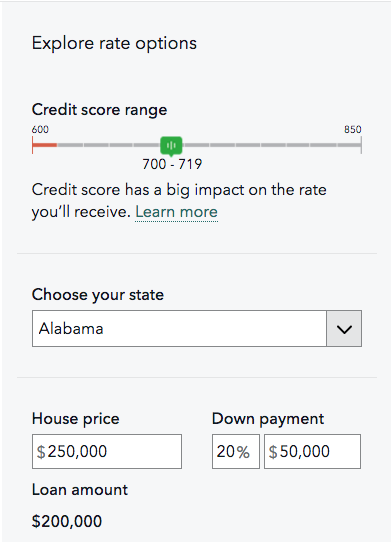
Does Your Credit Score Impact the Cost of Your House? YES!
Can your credit score actually COST you money when buying a house? Absolutely! Lower credit scores can cost thousands of dollars over the life of a mortgage loan. Here’s why.
Your credit rating matters to a mortgage lender. Like all lenders, mortgage companies offer loans on the basis that you will be willing and able to repay what you’ve borrowed, plus the financing rate, over the life of the loan.
In simple terms, that’s what a credit score is—a summary of your willingness and ability to meet past financial obligations. A lower score implies more risk, statistically speaking. Banks charge higher interest rates on “risky” loans.
The Cold Hard Facts of Credit Rating and Mortgage Cost
Assume, for example, you are purchasing a $250,000 home with a standard 20 percent down payment ($50,000). This means your loan amount will be $200,000.
The table below shows the potential impact of different credit scores on your interest rate (lower scores = higher rates), along with the total amount of interest paid during the first five years and over the life of a 30-year conventional mortgage.

In the example above, improving your credit score by 100 points (from 650 to 750) before shopping for a mortgage makes a big difference, saving you $6,215 in the first five years and $27,593 over the life of the loan. Remember, the amounts listed above ONLY represent your interest expense.
Also note that if you are in the lowest bracket (with a credit score of 650), the total interest payments on the loan over 30 years ($203,179) will be higher than the total amount borrowed ($200,000)!
Other important considerations:
- Mortgage interest rates frequently change and vary by location. For example, interest rates in California are not necessarily the same as those available, even for the same credit rating, in Georgia.
- If your down payment is less than 20 percent, you may be compelled to purchase private mortgage insurance, and your loan cost will be even higher.
- If your credit score is under 620 (considered “poor”), many lenders will decline to offer any loan, regardless of interest rate. You may need to work with a financial counselor, seek an FHA loan (if you qualify), or get a co-signer to secure a mortgage.
What If I Can’t Improve My Credit Score Before Buying?
If you have less than stellar credit, don’t assume you’re stuck! If you improve your credit score after securing a mortgage, you may want to refinance to take advantage of your access to potentially lower interest rates.
Discuss this with your lender of choice. Just be sure the fees associated with refinancing don’t offset the potential savings offered by a lower interest rate.
If you intend to refinance in a few years, be sure you don’t have a late mortgage payment or any other late payments before refinancing! There are several other steps you can also take to improve your credit score.
Determine the Impact of YOUR Credit Score in YOUR State
Want to see current interest rates available in your state, based on your credit score? Use the “Explore interest rates” tool provided by the Consumer Financial Protection Bureau. (See example, below.) Interest rates on the site are updated twice a week to remain current. It’s a great way to do some financial planning!

Sample screenshot from the Consumer Financial Protection Bureau’s Explore interest rates tool.
